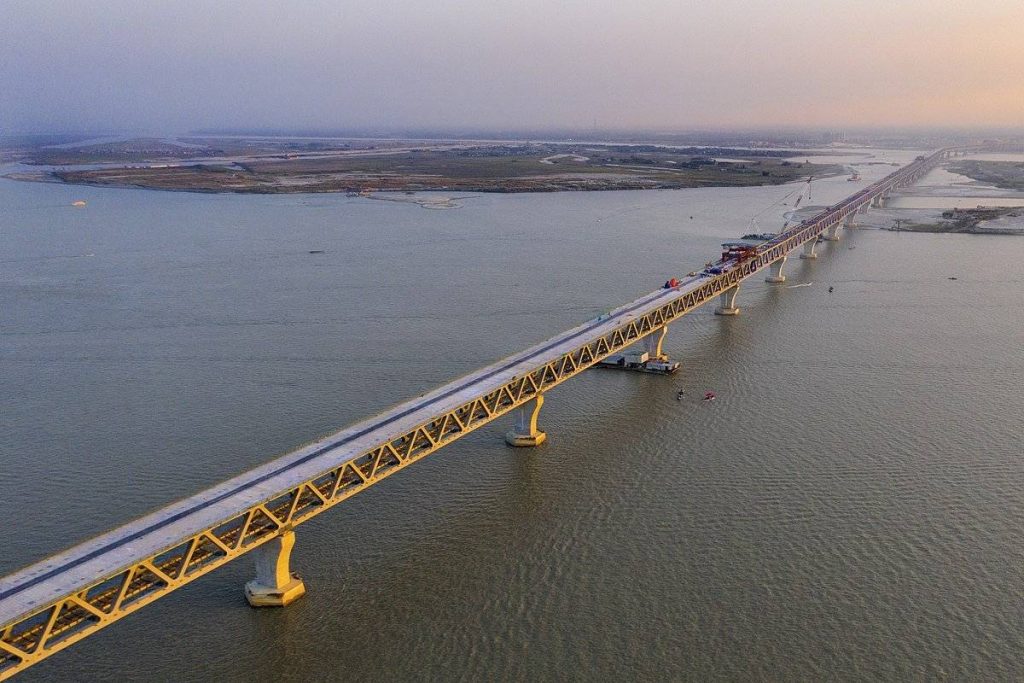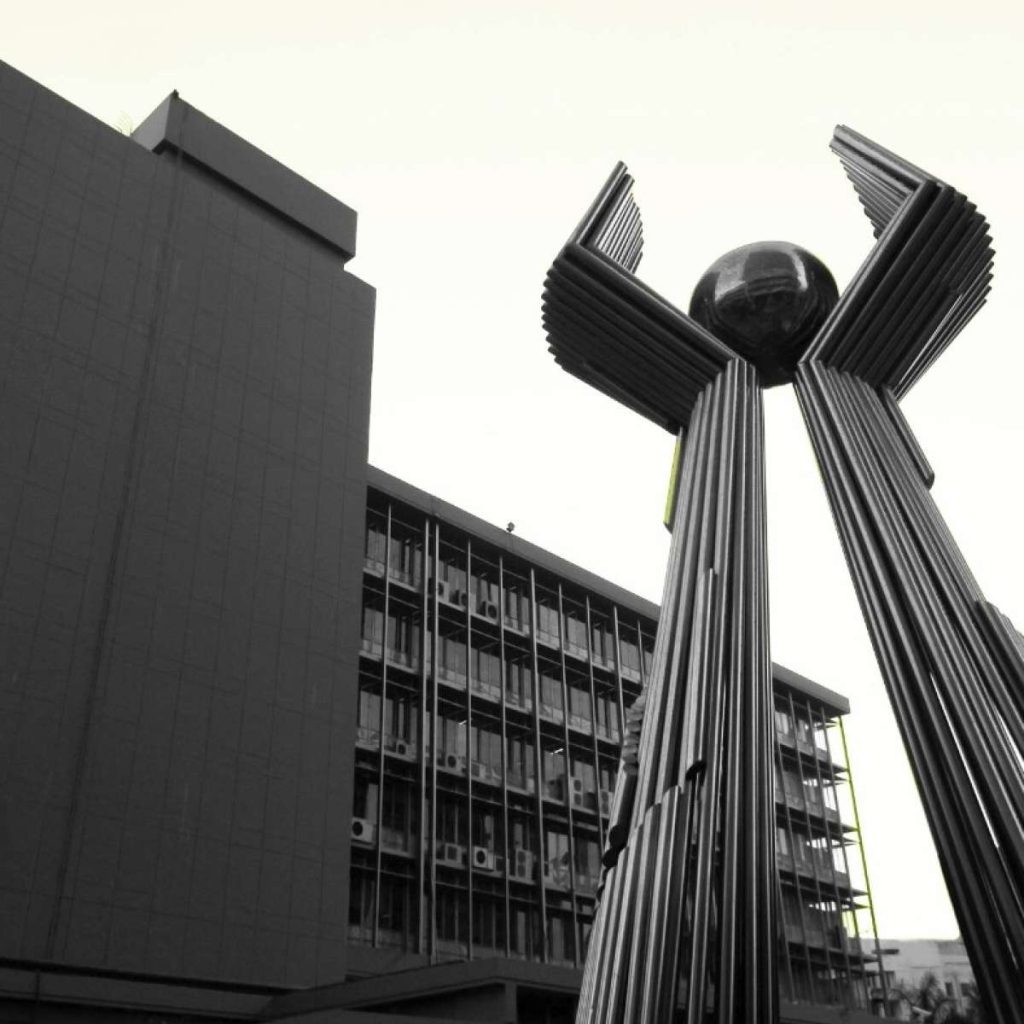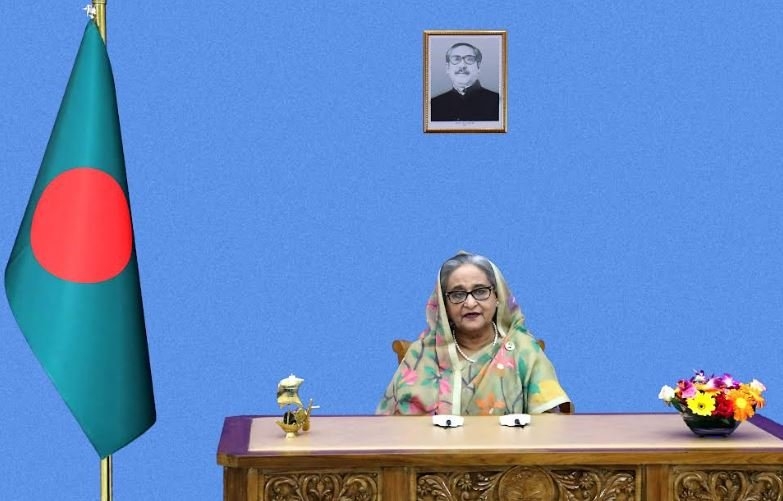The cabinet directives include relaxation of taxes on food imports, augmenting food production domestically and sending more skilled manpower abroad…reports Asian Lite News
Amid an ongoing economic crisis, the Bangladesh cabinet has issued half a dozen directives for the country to navigate through the domestic and external challenges posing serious threats to the macroeconomic stability next year.
After a cabinet meeting on Monday with Prime Minister Sheikh Hasina, Cabinet Secretary Khandker Anwarul Islam told journalists that the directives include on relaxation of taxes on food imports, augmenting food production domestically and sending more skilled manpower abroad, reports Xinhua news agency.
The meeting instructed relevant authorities to ensure more inflow of foreign direct investment as well as remittances.
Maintaining adequate food storage ahead of 2023 was the other very important directive from the cabinet meeting, said Anwarul Islam.
After reviewing the international situation, according to the official, the cabinet said that 2023 is very likely to be a critical year because of interest rate hikes by the US Federal Reserve, the Russia-Ukraine war and the slump in food production in parts of the world.
The directives came amid the ongoing economic crisis when Bangladesh’s foreign exchange reserves fell below $35 billion, weighed by higher import bills and the Bangladeshi taka’s weakness driven by the USD’s surge in recent months.
On Monday, Bangladesh Bank spokesperson Abul Kalam Azad said that the demand and supply of foreign currencies will see a balanced condition by February next year hopefully.
A day earlier, the bank brushed aside “conspiratorial” social media posts inducing people to draw their deposits from banks, saying there is no liquidity crisis in banks and deposits are completely safe.
Amid efforts to bolster its foreign exchange reserves, which stood at $34.3 billion last week, Bangladesh is seeking $2 billion from the World Bank and the Asian Development Bank (ADB).
Last week, the International Monetary Fund (IMF) confirmed that it had reached a staff-level agreement with Bangladesh that paves the way for the release of the much-awaited $4.5 billion in loan support.
The World Bank Vice President for South Asia, Martin Raiser, who concluded his visit to Bangladesh on Sunday, reaffirmed the bank’s continued support to help the country navigate through the current economic challenges and achieve resilient and inclusive growth.
“We’re ready to lend our full support to these efforts at this challenging time,” he said.

Beautification of Dhaka
Meanwhile, the World Bank will grant a loan to Bangladesh for a project to beautify Dhaka, one of the most congested cities in the world.
Finance Minister AHM Mustafa Kamal told journalists on Sunday that the project named ‘Beautification of Dhaka’ will be implemented in several phases.
Currently, World Bank Vice President for the South Asia Martin Raiser is on a three-day visit to Dhaka during which he is scheduled to hold meetings with Prime Minister Sheikh Hasina and other government high-ups.
He is also supposed to inspect some projects being implemented with World Bank funding.
Kamal’s announcement came following his meeting with Raiser which was also attended by Finance secretary Fatima Yasmin, Economic Relations Division (ERD) secretary Sharifa Khan, incoming World Bank country director of Bangladesh and Bhutan Abdoulaye Seck, regional director Guangzhe Chen and outgoing country director Mercy Tembon.
The Finance Minister said that the “rivers around Dhaka would be freed from illegal grabbers and the city would be made livable” with the help of the World Bank grant. (with inputs from Sumi Khan)

Central bank dismisses liquidity crisis rumour
The central bank of Bangladesh has dismissed “conspiratorial” social media posts inducing people to draw their deposits from banks.
The Bangladesh Bank (BB) said there is no liquidity crisis in banks and deposits are completely safe, reports Xinhua news agency.
BB spokeswoman Sayeda Khanam said in a statement on Sunday that “conspiratorial information was being disseminated on various social media provoking people to withdraw their deposits from banks”.
She said the banking system of Bangladesh is in a strong position.
“There is no liquidity crisis in the banking system,” she noted in the statement.
“No bank in the country was shut in 51 years since Bangladesh’s independence. Hopefully, no bank in Bangladesh will be closed down in the coming days. People’s deposits in banks are completely safe,” said the BB spokeswoman.
Amid efforts to bolster its foreign exchange reserves, which stood at $34.3 billion, Bangladesh is seeking $2 billion from the World Bank and the Asian Development Bank.
On November 9, the International Monetary Fund confirmed that it had reached a staff-level agreement with Bangladesh that paves the way for the release of the much-awaited $4.5 billion in loan support.

